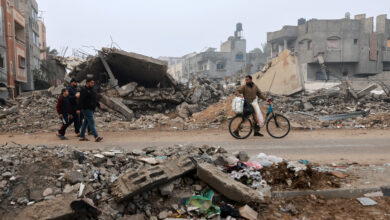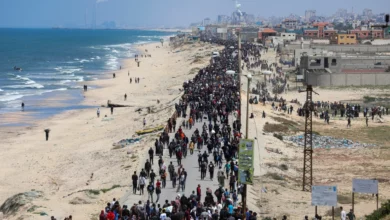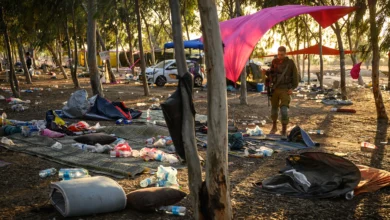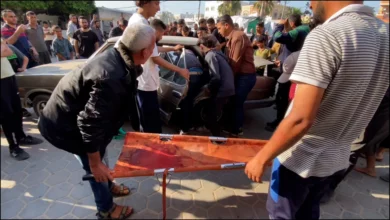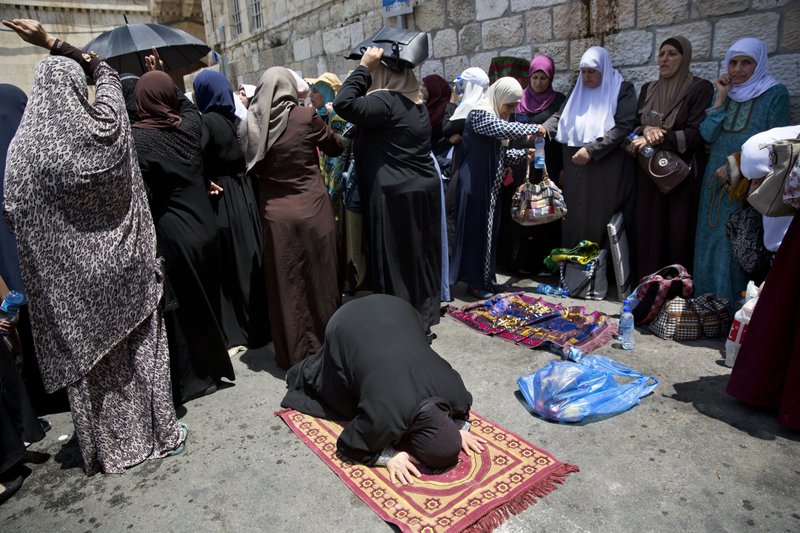
A senior Muslim official in Jerusalem said Wednesday that worshipers would not return to a contested shrine until Israel removes the new railings and cameras it installed after a deadly attack there.
Ikrema Sabri, the head of the Supreme Islamic Committee, said that even after Israel removed metal detectors at the site more steps were required. He said mass prayer protests would continue until the gates of the compound were opened, metal railings and an iron bridge removed and newly installed cameras taken down. He said a lawyer working on behalf of the Muslim administration of the holy site will be in touch with Israeli police to make the demands.
“We will not enter the mosque until these things are implemented,” he told The Associated Press. “Now we are awaiting the response of the police.”
The demand sets off the prospect of a renewed showdown ahead of Friday prayers at the site, when a large number of worshippers arrive for the centerpiece of the Muslim prayer week, and extends a crisis Israel was eager to resolve.
Israel installed the new security measures earlier this month after Arab gunmen shot and killed two police officers from within the site. Under intense pressure, it removed the metal detectors and said it planned to install sophisticated security cameras instead.
Israel says the measures were a natural response and necessary to prevent further attacks while Palestinians claim Israel is trying to expand its control over the site.
The continued standoff highlighted the deep distrust between Israel and the Palestinians when it comes to the shrine — the third-holiest in Islam and the most sacred in Judaism.
The 37-acre (15-hectare) esplanade, known to Muslims as the Noble Sanctuary and to Jews as the Temple Mount, has been a lightning rod for the rival religious and national narratives of the two sides. It has triggered major confrontations in the past.
The latest development could put Israeli Prime Minister Benjamin Netanyahu in a tough spot, as he tries to tamp out a wave of unrest that has triggered international pressure while not appearing to his hard-line base as capitulating.
His government has faced a growing backlash at home for what critics said was hasty decision-making and embarrassing policy reversals.
In a face-saving compromise, and after Netanyahu spoke to Jordan’s King Abdullah II and others, Israel’s security Cabinet announced Monday that in place of the metal detectors it would employ nonintrusive “advanced technologies,” reportedly smart cameras that can detect hidden objects. The new security system is said to be set up in the next six months at a cost of $28 million.
Palestinian politicians and Muslim clerics say that isn’t enough and are demanding Israel restore the situation at the shrine in Jerusalem’s Old City to what it was before the July 14 deadly attack.
In response to that attack, Israel closed the shrine for two days for weapons searches and installed the metal detectors. The decision quickly triggered Muslim protests amid rumors that Israel was trying to expand its control at the site under the guise of security — a claim Israel strongly denied.

